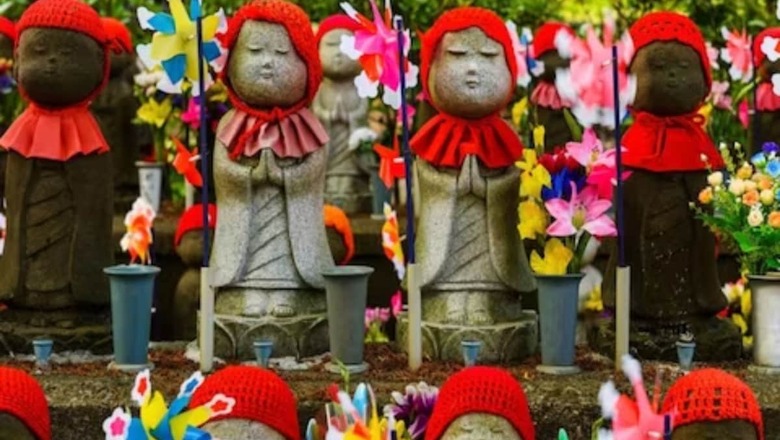
views
Losing a child is an agonising experience, often arising from miscarriage, abortion, or various other reasons. Japanese culture uniquely addresses this grief through the centuries-old tradition known as Mizuko Kuyo, meaning “water child memorial service” in English. This Japanese Buddhist ceremony is conducted for those who have endured the pain of miscarriage, stillbirth, or abortion, and it has also found expression in Thai and Chinese cultures. The ritual gained prominence in the 1970s with the establishment of shrines dedicated specifically to Mizuko Kuyo.
The motivation behind Mizuko Kuyo lies in acknowledging parental grief, comforting the soul of the unborn child, and addressing feelings of guilt associated with abortion. There is also a belief in preventing potential vengeful spirits from haunting the bereaved. According to Buddhist beliefs, a child who dies before birth does not ascend to heaven because he lacks the opportunity to accumulate good karma. Instead, these unborn children are enshrined as statues at Sai no Kawara, located on the banks of the Sanzu River, symbolising the pain caused to their parents. The Mizuko Kuyo ritual serves as a means for parents to express their sorrow and seek forgiveness.
Typically performed by Buddhist priests, Mizuko Kuyo involves making offerings to Jizo, a bodhisattva revered for protecting children. Jizo is thought to guide the departed children to the afterlife, shield them from demons, and assist them in reaching heaven. The roots of this ritual trace back to the Edo period when factors like famine led to instances of infanticide and abortion, prompting the adoption of these practices.
The ceremony can be attended by both parents or just one, occurring as a one-time event or regularly—monthly or annually. During the ritual, the priest recites the names of various Buddhas and bodhisattvas, chanting the Heart Sutra and the 25th chapter of the Lotus Sutra. Gifts, such as food, drink, incense, or flowers, are presented on behalf of those mourning, symbolizing offerings to appease and honour the departed souls. Mizuko Kuyo serves as a poignant cultural expression, offering solace and remembrance to those who have suffered the loss of a child.

















Comments
0 comment